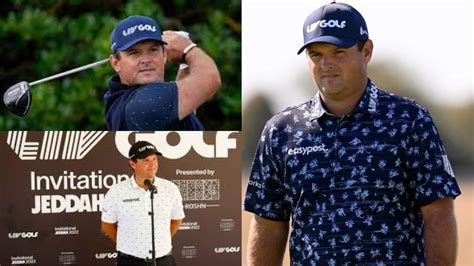
Jack Nicklaus’ defamation lawsuit against Golf.com and its parent company, G/O Media, has survived a legal challenge, with a Florida judge denying the defendants’ motion to dismiss the case. The lawsuit stems from an article published in May 2022 that Nicklaus alleges falsely accused him of endorsing LIV Golf, the Saudi-backed rival to the PGA Tour, for financial gain, damaging his reputation and business interests.
A Palm Beach County judge ruled that Nicklaus had presented sufficient evidence to proceed with his claims of defamation, false light, and unfair competition. The article, titled “Jack Nicklaus has already been paid more than $100M by LIV Golf,” suggested that Nicklaus had implicitly endorsed the controversial league despite publicly stating he had turned down an offer to be its CEO. Nicklaus claims the article misrepresented his involvement and intentions, causing significant harm to his brand and legacy.
The lawsuit alleges that G/O Media and Golf.com acted with malice and reckless disregard for the truth, publishing the article with the intent to harm Nicklaus’ reputation. Nicklaus is seeking substantial damages, including compensatory and punitive damages, to address the financial losses and reputational harm he has suffered. The case is now set to proceed to the discovery phase, where both sides will gather evidence and prepare for a potential trial.
The legal battle underscores the intense scrutiny and controversy surrounding LIV Golf, as well as the high stakes involved for prominent figures in the golf world who have been associated with the league. Nicklaus, a legendary figure in golf history, has maintained a strong stance against LIV Golf, emphasizing his loyalty to the PGA Tour. His lawsuit highlights the potential consequences of misrepresenting an individual’s position on such a divisive issue.
Background of the Lawsuit
The genesis of the lawsuit lies in the contentious environment surrounding the emergence of LIV Golf. Backed by Saudi Arabia’s Public Investment Fund, LIV Golf has disrupted the professional golf landscape by offering lucrative contracts to prominent players, leading to a schism within the sport. Many golf legends and current players have been approached by LIV Golf, and their decisions have been subject to intense public and media scrutiny.
According to the lawsuit, the Golf.com article, published in May 2022, falsely claimed that Nicklaus had already received more than $100 million from LIV Golf. This claim directly contradicted Nicklaus’ repeated public statements that he had turned down offers to become the CEO of LIV Golf and that he remained committed to the PGA Tour. Nicklaus alleges that the article created the impression that he was secretly supporting LIV Golf for personal financial gain, undermining his credibility and damaging his relationships with sponsors and fans.
In his initial response to the article, Nicklaus vehemently denied the claims, stating that he had always acted in the best interests of the game and that his decisions were not motivated by money. He emphasized his long-standing commitment to the PGA Tour and his belief in the traditional values of the sport. Nicklaus’ decision to file a lawsuit reflects the seriousness with which he views the allegations and his determination to protect his reputation.
Legal Arguments and Court Decision
G/O Media sought to dismiss the lawsuit, arguing that the article was based on credible sources and that it did not meet the legal threshold for defamation. The media company contended that the article was protected under the First Amendment and that Nicklaus had failed to demonstrate that the statements were false or made with actual malice.
However, Judge Jaimie Goodman of the 15th Judicial Circuit Court in Palm Beach County rejected these arguments, ruling that Nicklaus had presented sufficient evidence to support his claims. The judge found that the article contained statements that could be reasonably interpreted as defamatory and that Nicklaus had presented evidence suggesting that G/O Media acted with malice or reckless disregard for the truth.
In her ruling, Judge Goodman highlighted several key points. First, she noted that the article’s headline and introductory paragraphs created a strong impression that Nicklaus had already received a substantial payment from LIV Golf. Second, she pointed out that the article failed to adequately present Nicklaus’ side of the story or to acknowledge his repeated denials of any financial relationship with LIV Golf. Third, she emphasized that Nicklaus had presented evidence suggesting that G/O Media had a motive to publish the article in order to generate clicks and revenue, regardless of its accuracy.
The judge concluded that Nicklaus had met the burden of proof required to proceed with his claims of defamation, false light, and unfair competition. She ordered that the case move forward to the discovery phase, where both sides will have the opportunity to gather evidence and present their arguments in greater detail.
Implications of the Ruling
The court’s decision to allow the lawsuit to proceed has significant implications for both Nicklaus and G/O Media. For Nicklaus, it represents a major victory in his effort to clear his name and protect his reputation. The ruling validates his claims that the Golf.com article was false and defamatory and that it caused him significant harm.
For G/O Media, the ruling means that it will have to defend its reporting practices in court. The company will be required to disclose its sources, internal communications, and editorial decision-making processes. This could potentially expose the company to further scrutiny and damage its credibility.
More broadly, the case highlights the challenges that media organizations face in reporting on controversial issues such as LIV Golf. The emergence of LIV Golf has created a highly polarized environment, with strong opinions on both sides. Media organizations must be careful to ensure that their reporting is accurate, fair, and balanced, and that they do not allow their own biases to influence their coverage.
The lawsuit also underscores the importance of protecting one’s reputation in the digital age. In an era of instant communication and social media, false or misleading information can spread rapidly, causing irreparable harm to individuals and organizations. Nicklaus’ decision to file a lawsuit demonstrates his commitment to defending his reputation and holding those who defame him accountable.
Potential Outcomes and Future Developments
As the case moves forward, there are several potential outcomes. First, the parties could reach a settlement agreement. In a settlement, G/O Media might agree to retract the article, issue a public apology, and pay Nicklaus a sum of money in exchange for him dropping the lawsuit.
Second, the case could proceed to trial. At trial, both sides would present evidence and arguments to a jury, who would then decide whether G/O Media defamed Nicklaus and, if so, how much damages he should be awarded.
Third, the case could be dismissed on other grounds. For example, G/O Media could file a motion for summary judgment, arguing that there is no genuine issue of material fact and that it is entitled to judgment as a matter of law.
Regardless of the ultimate outcome, the case is likely to have a significant impact on the media landscape and the way in which individuals and organizations protect their reputations. It serves as a reminder that even in the digital age, the truth still matters and that those who spread false information can be held accountable.
The case is currently in the discovery phase, with both sides gathering evidence and preparing for potential future hearings. Observers note that the legal battle could take months or even years to resolve, given the complexity of defamation law and the high stakes involved.
Nicklaus’ Stance on LIV Golf
Throughout the controversy surrounding LIV Golf, Jack Nicklaus has maintained a consistent stance, emphasizing his loyalty to the PGA Tour and his belief in the traditional values of the sport. He has repeatedly stated that he turned down offers to become the CEO of LIV Golf, citing his commitment to the PGA Tour and his concerns about the league’s format and long-term viability.
In various interviews and public statements, Nicklaus has expressed his support for the PGA Tour and its efforts to adapt to the changing landscape of professional golf. He has also emphasized the importance of preserving the history and traditions of the game, which he believes are threatened by LIV Golf’s disruptive approach.
Nicklaus’ stance on LIV Golf has been widely praised by many in the golf world, who see him as a voice of reason and integrity in a time of great upheaval. His decision to file a lawsuit against Golf.com further underscores his commitment to defending his reputation and standing up for what he believes is right.
The Broader Context of LIV Golf and the PGA Tour
The emergence of LIV Golf has sparked a fierce debate about the future of professional golf. LIV Golf is financed by Saudi Arabia’s Public Investment Fund and is offering guaranteed contracts and lucrative prize purses to attract top players. This has led to a significant divide within the sport, with some players choosing to join LIV Golf and others remaining loyal to the PGA Tour.
The PGA Tour has responded to the challenge posed by LIV Golf by increasing prize money, enhancing player benefits, and introducing new initiatives to attract and retain top talent. The PGA Tour has also taken a firm stance against LIV Golf, suspending players who have joined the rival league.
The conflict between LIV Golf and the PGA Tour has raised important questions about the role of money in sports, the balance between tradition and innovation, and the ethical considerations surrounding Saudi Arabia’s involvement in professional golf. The Nicklaus lawsuit is just one aspect of this larger story, but it highlights the potential consequences of misrepresenting an individual’s position on these contentious issues.
Expert Opinions and Analysis
Legal experts have offered varying opinions on the merits of Nicklaus’ defamation lawsuit. Some experts believe that Nicklaus has a strong case, arguing that the Golf.com article contained false and misleading statements that damaged his reputation. They also point to the evidence suggesting that G/O Media acted with malice or reckless disregard for the truth.
Other experts are more skeptical, arguing that the article was based on credible sources and that it is protected under the First Amendment. They also contend that Nicklaus is a public figure and that he must meet a high burden of proof to prevail in a defamation lawsuit.
Regardless of the ultimate outcome, the Nicklaus lawsuit is likely to be closely watched by legal scholars and media organizations. It raises important questions about the boundaries of free speech, the responsibilities of journalists, and the rights of individuals to protect their reputations.
Impact on Nicklaus’ Brand and Legacy
Jack Nicklaus is one of the most iconic figures in the history of golf. He has won a record 18 major championships and has had a successful career as a golf course designer and businessman. His brand is associated with excellence, integrity, and tradition.
The Golf.com article threatened to undermine Nicklaus’ brand and legacy by suggesting that he was willing to compromise his principles for financial gain. The lawsuit is an effort to protect his reputation and ensure that his legacy remains intact.
Nicklaus’ decision to file a lawsuit reflects his deep commitment to the game of golf and his determination to uphold its values. It also demonstrates his willingness to fight for what he believes is right, even in the face of adversity.
The ultimate resolution of the lawsuit will have a significant impact on Nicklaus’ brand and legacy. A victory in court would vindicate his claims and reaffirm his reputation as a man of integrity. A loss, on the other hand, could tarnish his image and raise questions about his motives.
Frequently Asked Questions (FAQ)
-
What is the core issue of the defamation lawsuit filed by Jack Nicklaus?
- The lawsuit centers on an article published by Golf.com and its parent company, G/O Media, which Nicklaus alleges falsely implied he endorsed LIV Golf for financial reasons, thereby damaging his reputation and business interests. He claims the article misrepresented his position and intentions regarding the Saudi-backed league.
-
Why did the court deny the motion to dismiss the lawsuit?
- The Palm Beach County judge ruled that Nicklaus presented sufficient evidence to support his claims of defamation, false light, and unfair competition. The judge found that the article contained statements that could be reasonably interpreted as defamatory and that Nicklaus had presented evidence suggesting that G/O Media acted with malice or reckless disregard for the truth.
-
What specific claims did the Golf.com article make that Nicklaus disputes?
- The article, titled “Jack Nicklaus has already been paid more than $100M by LIV Golf,” suggested that Nicklaus had implicitly endorsed LIV Golf despite publicly stating he had turned down an offer to be its CEO. Nicklaus asserts that this claim is false and misrepresents his involvement and intentions.
-
What are the potential outcomes of this lawsuit moving forward?
- Potential outcomes include a settlement agreement, where G/O Media might retract the article, issue an apology, and pay damages; a trial, where a jury would decide if G/O Media defamed Nicklaus; or the case could be dismissed on other legal grounds, such as a motion for summary judgment by G/O Media.
-
What is Jack Nicklaus’ stated position on LIV Golf, and how does this lawsuit relate to that stance?
- Nicklaus has consistently stated his loyalty to the PGA Tour and his belief in the traditional values of golf, publicly rejecting offers to lead LIV Golf. The lawsuit underscores his commitment to defending his reputation and clarifying his position, countering what he perceives as a false narrative that he secretly supports LIV Golf for financial gain.
Deep Dive into Defamation Law
To fully understand the nuances of Nicklaus’ lawsuit, it’s essential to grasp the legal principles of defamation. Defamation is a legal term for any statement that harms someone’s reputation. It’s divided into two categories: libel (written or published statements) and slander (spoken statements). Nicklaus’ case falls under libel, as the defamatory statements were published in an article.
To win a defamation lawsuit, the plaintiff (Nicklaus, in this case) must prove several elements:
- False Statement: The statement must be demonstrably false. Opinion, even if unflattering, generally isn’t considered defamatory.
- Publication: The statement must have been published, meaning communicated to a third party.
- Identification: The statement must identify the plaintiff, either explicitly or implicitly.
- Injury: The statement must have caused injury to the plaintiff’s reputation. This can include financial loss, emotional distress, or damage to their standing in the community.
- Fault: The plaintiff must prove that the defendant (G/O Media) was at fault in publishing the statement. The level of fault required depends on whether the plaintiff is a public figure or a private individual.
Since Nicklaus is a public figure, he faces a higher burden of proof. He must demonstrate “actual malice,” meaning that G/O Media knew the statement was false or acted with reckless disregard for the truth. This is a difficult standard to meet, as it requires proving the defendant’s state of mind.
The “actual malice” standard was established in the landmark Supreme Court case New York Times Co. v. Sullivan (1964). The Court reasoned that public figures should expect greater scrutiny and that the press needs some leeway to report on matters of public concern without fear of crippling lawsuits.
The “False Light” Claim
In addition to defamation, Nicklaus’ lawsuit includes a claim for “false light.” False light is a related tort that involves portraying someone in a false and misleading way that is highly offensive to a reasonable person. It differs from defamation in that the statement doesn’t necessarily have to be false; it just has to create a false impression.
To win a false light claim, Nicklaus must prove:
- Publication: The false light portrayal was communicated to a third party.
- Identification: He was identified in the portrayal.
- Falsity: The portrayal creates a false impression of him.
- Offensiveness: The portrayal is highly offensive to a reasonable person.
- Fault: G/O Media acted with knowledge or reckless disregard of the falsity of the portrayal.
The false light claim adds another layer to Nicklaus’ lawsuit, allowing him to argue that the Golf.com article, even if not entirely false, created a misleading and damaging impression of his involvement with LIV Golf.
The “Unfair Competition” Claim
The lawsuit also includes a claim for unfair competition. This claim is less directly related to the content of the article and more to the alleged motives behind its publication. Nicklaus is essentially arguing that G/O Media published the article to gain a competitive advantage by generating clicks and revenue, even if it meant harming his reputation.
To win an unfair competition claim, Nicklaus must prove:
- Competition: He and G/O Media are in competition with each other. This is likely, given that both are involved in the golf industry.
- Unfair Practice: G/O Media engaged in an unfair or deceptive practice.
- Injury: He suffered injury as a result of G/O Media’s unfair practice.
The unfair competition claim adds a business dimension to the lawsuit, suggesting that G/O Media’s actions were motivated by commercial gain rather than legitimate journalistic purposes.
The Significance of the Discovery Phase
The court’s decision to allow the lawsuit to proceed to the discovery phase is significant because it gives both sides the opportunity to gather evidence to support their claims. During discovery, Nicklaus’ legal team can subpoena documents, take depositions, and conduct other investigations to uncover evidence that G/O Media acted with malice or reckless disregard for the truth.
G/O Media, in turn, can seek to gather evidence to support its defense, such as evidence that the article was based on credible sources or that Nicklaus’ reputation was not significantly harmed.
The discovery phase can be a lengthy and expensive process, but it’s often crucial to the outcome of a lawsuit. The evidence uncovered during discovery can significantly strengthen or weaken a party’s case.
The Potential Impact on Media Reporting
The Nicklaus lawsuit has the potential to impact media reporting on controversial issues, particularly in the sports world. If Nicklaus ultimately prevails, it could send a message to media organizations that they must be careful to ensure the accuracy and fairness of their reporting, especially when dealing with high-profile individuals.
However, if G/O Media prevails, it could reinforce the principle of free speech and protect the press’s ability to report on matters of public concern without fear of crippling lawsuits.
Regardless of the outcome, the lawsuit is likely to spark debate about the responsibilities of journalists and the rights of individuals to protect their reputations.
The Role of Public Opinion
Public opinion can play a significant role in defamation lawsuits, even though it’s not a formal legal factor. A plaintiff who is widely admired and respected is more likely to win over a jury than a plaintiff who is unpopular or controversial.
In Nicklaus’ case, his legendary status in the golf world and his reputation for integrity could work in his favor. Jurors may be more inclined to believe that he was unfairly targeted by the Golf.com article.
However, public opinion can also be fickle and influenced by media coverage of the lawsuit. Both sides will likely try to shape public perception of the case through their public statements and legal filings.
The Future of LIV Golf and the PGA Tour
The Nicklaus lawsuit is just one small piece of the larger story of LIV Golf and the PGA Tour. The conflict between the two leagues is likely to continue for the foreseeable future, with both sides vying for the loyalty of players and fans.
The outcome of the Nicklaus lawsuit could have some impact on the future of the two leagues, but it’s unlikely to be a decisive factor. The larger issues at stake include the role of money in sports, the balance between tradition and innovation, and the ethical considerations surrounding Saudi Arabia’s involvement in professional golf.
These issues are complex and multifaceted, and they will likely continue to be debated for years to come.
The Enduring Legacy of Jack Nicklaus
Regardless of the outcome of the lawsuit, Jack Nicklaus’ legacy as one of the greatest golfers of all time is secure. His record of 18 major championships is unlikely to be broken anytime soon, and his impact on the game is undeniable.
Nicklaus’ decision to file a lawsuit is a testament to his commitment to defending his reputation and upholding the values of the sport he loves. It’s a reminder that even legendary figures are not immune to the challenges of the modern world, but that they can use their platform to fight for what they believe is right.









